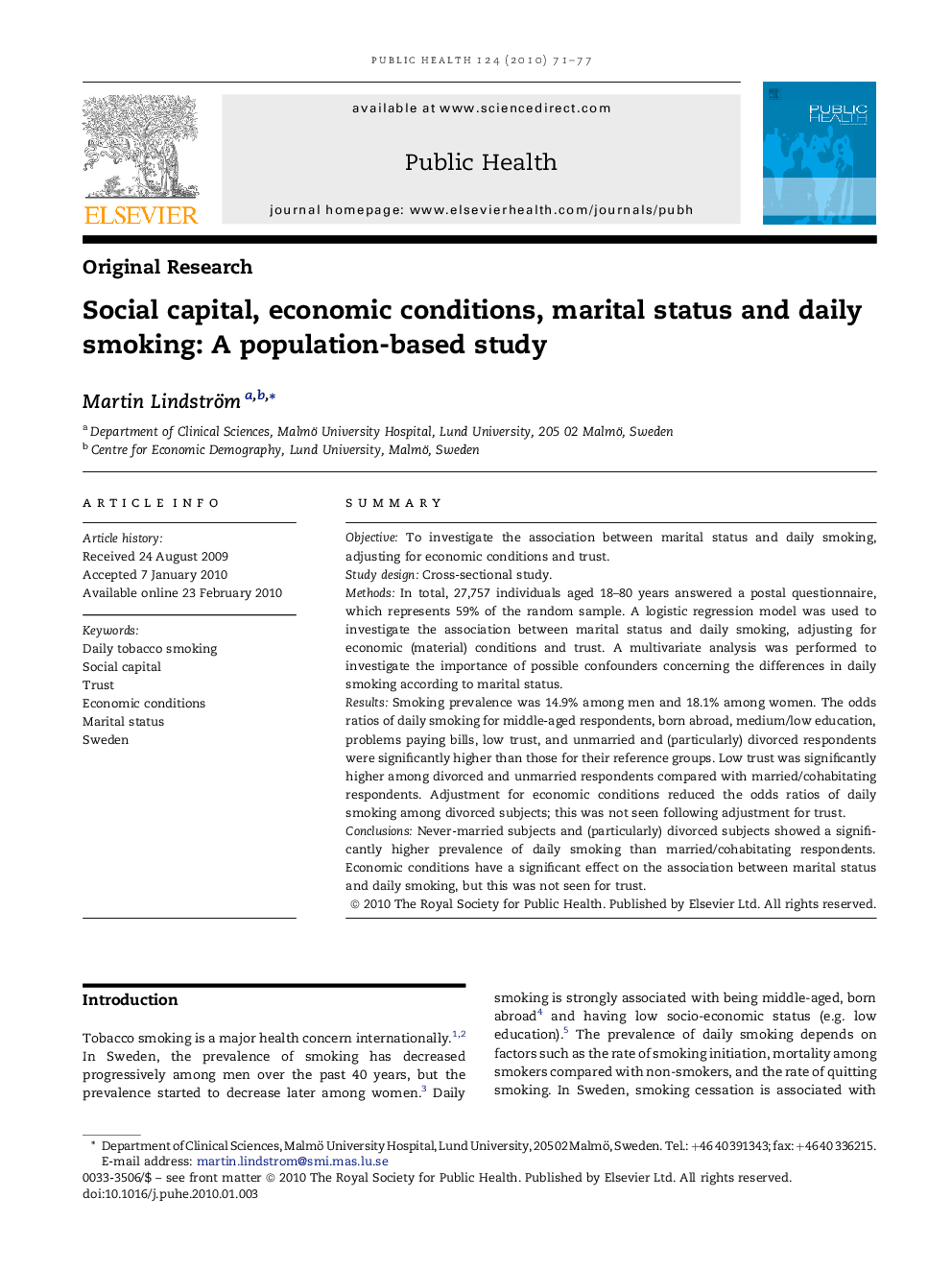| Article ID | Journal | Published Year | Pages | File Type |
|---|---|---|---|---|
| 1088688 | Public Health | 2010 | 7 Pages |
SummaryObjectiveTo investigate the association between marital status and daily smoking, adjusting for economic conditions and trust.Study designCross-sectional study.MethodsIn total, 27,757 individuals aged 18–80 years answered a postal questionnaire, which represents 59% of the random sample. A logistic regression model was used to investigate the association between marital status and daily smoking, adjusting for economic (material) conditions and trust. A multivariate analysis was performed to investigate the importance of possible confounders concerning the differences in daily smoking according to marital status.ResultsSmoking prevalence was 14.9% among men and 18.1% among women. The odds ratios of daily smoking for middle-aged respondents, born abroad, medium/low education, problems paying bills, low trust, and unmarried and (particularly) divorced respondents were significantly higher than those for their reference groups. Low trust was significantly higher among divorced and unmarried respondents compared with married/cohabitating respondents. Adjustment for economic conditions reduced the odds ratios of daily smoking among divorced subjects; this was not seen following adjustment for trust.ConclusionsNever-married subjects and (particularly) divorced subjects showed a significantly higher prevalence of daily smoking than married/cohabitating respondents. Economic conditions have a significant effect on the association between marital status and daily smoking, but this was not seen for trust.
